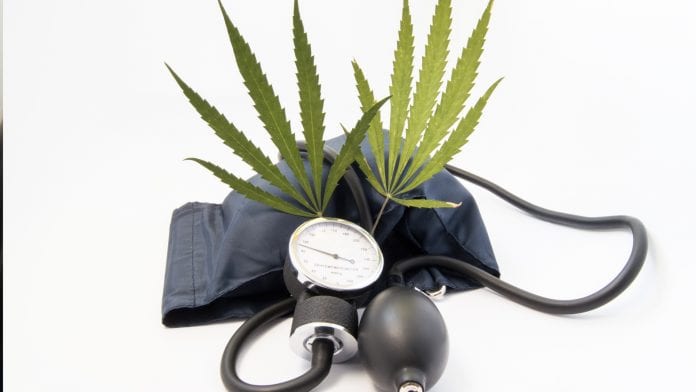
Ran Abuhasira of Ben-Gurion University of the Negev speaks to HEQ about the use of cannabis in treating elderly patients.
In February 2021, researchers at Ben-Gurion University of the Negev (BGU) and Soroka University Medical Center in Israel reported that cannabis may reduce blood pressure in older adults. The study, published in the European Journal of Internal Medicine under the title ‘Cannabis is associated with blood pressure reduction in older adults: a 24-hours ambulatory blood pressure monitoring study’, found ‘significant’ reductions in the blood pressure of adults aged 60 and older who used cannabis to treat unrelated conditions over a period of three months.
Lead author Ran Abuhasira speaks to HEQ about the use of cannabis in treating elderly patients.
What were the key goals of your study?
We conducted the study as a safety assessment: our main goal was to make sure that we were not causing any harm to older adults with hypertension who may suffer from a number of comorbidities. The key conclusion from this study, as well as other research that we conducted in this field, was that cannabis is generally safe for medical use in older adults with hypertension. In terms of blood pressure specifically, we observed a reduction in the mean blood pressure of patients after three months of treatment. That finding was a surprise to us – we did not think that using cannabis would cause any significant difference to the blood pressure values.
Did patients experience any statistically significant side effects from using cannabis?
Definitely: cannabis can have quite a few side effects; and in our study in particular, we found that cannabis had a very high rate of side effects or adverse events. Almost all the patients – 80% – complained about some adverse events. On the plus side, however, the majority of these events were not severe and did not require any hospitalisation or additional treatments. The most common side effects that we observed – and we had seen these issues before in previous studies – were dizziness, a sensation of instability, dry mouth, and heart palpitations in some patients.
Again, it is important to emphasise that most of these effects were not severe. In some cases, the side effects caused patients to withdraw from treatment; and of course that is understandable, but none of the patients in the study experienced any severe or life-threatening adverse events. As doctors, every treatment that we give carries the risk of some form of adverse effect. Some treatments have a diverse profile of adverse effects and some are more benign, and overall the side effect profile of cannabis is broadly benign, but of course there are still side effects which we cannot ignore.
Older adults are the fastest growing demographic of medical cannabis users. Why do you think older adults are increasingly drawn to cannabis-based medicines?
I think the main reason for that is the profile of indications for which we give cannabis as a treatment, most specifically in terms of pain. Many older adults suffer from chronic pain for a variety of reasons; and prescribing cannabis as a treatment for pain becomes more common as patients get older. There has been an increase in the general acceptance of cannabis-based treatments in a number of countries, which has meant that older adults are now more willing to try medicinal cannabis.
In addition to this, because older adults typically suffer from more diseases and conditions, they are more likely to be considered for trials of new and emerging treatments. This is especially the case for treatments like cannabis, where the perception among certain segments of the public is that it is not so much of a ‘medicine’ in the sense that we traditionally view medicines – that it is less clinical and has fewer associated adverse events or side effects than classic pharmaceuticals – and this notion is not completely true.
I believe that cannabis-based medicines should be viewed in the same way as any other treatment offered in the medical sector, with recognised upsides and downsides, and that we should consider the pros and the cons of cannabis-based treatment for each patient individually; but I think that many patients perceive cannabis as some kind of wonder drug which can cure many of their illnesses, without triggering any of the adverse events that traditional drugs can cause. That is obviously not true. We in the medical field do not think cannabis can cure pretty much anything, but we do think it is a good treatment for the symptoms of many conditions.
Is the current Israeli cannabis landscape entirely beneficial for research and innovation? What policy changes would improve the situation for scientists?
The situation in Israel is quite good: it is definitely better than in many Western countries. Almost three years ago, I published an article in the European Journal of Internal Medicine comparing the regulations and laws governing cannabis in North America, Europe and Israel, which found that the cannabis legislation in Israel is quite permissive compared to other Western countries. However, cannabis is still technically considered an illicit drug in Israel – it is still not a full medicine in the way that medications such as ibuprofen or paracetamol are.
Ran Abuhasira
Cannabis Clinical Research Institute and Clinical Research Center
Soroka University Medical Center
Faculty of Health Sciences
Ben-Gurion University of the Negev
This article is from issue 17 of Health Europa. Click here to get your free subscription today.









